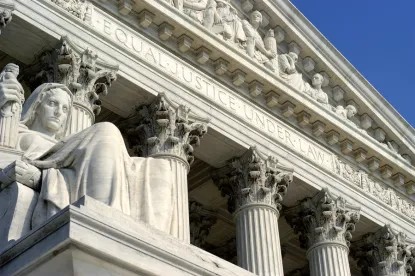In its reply brief in Spokeo v. Robins, petitioner Spokeo comes out of the gate with the consequential argument that for Robins to prevail, the Supreme Court must accept his position that every violation of a statutory right qualifies as an injury-in-fact. Indeed, the case is much larger than Fair Credit Reporting Act (FCRA) inaccuracies at issue; the case implicates any federal statute in which a violation triggers automatic penalties including the Real Estate Settlement Procedures Act (RESPA), the Truth in Lending Act (TILA) and the Telephone Consumer Protection Act (TCPA).
The question before the Court is whether Congress can provide standing to satisfy the Constitution’s “Case and Controversy” requirement through a bare violation of statutory rights. Spokeo argues the Court’s injury-in-fact standing jurisprudence demands harm that goes beyond mere inaccuracies found in Spokeo’s database from which Robins suffered no real-world adverse effect. As addressed in the Reply brief, while Congress certainly can provide new legal recognition of injuries, the Constitution still requires a concrete harm independent of the cause of action.
The petitioner takes on Robins’ catchphrase – “every legal wrong has a remedy” – countering that such remedies are surely available through the courts when one has suffered concrete harm. For instance, with actions for assault and battery, an assault regardless of any actual touch inflicts a real fear, and suffering, of immediate battery. Also trespass on real property infringes the property owner’s right to exclude due to a physical invasion of the property. Even unjust enrichment claims are based on harm to a plaintiff from the misuse of her property.
Importantly, the petitioner bolsters the arguments in favor of robust separation of powers. At bottom, separation of powers, as with all structural constitutional principles, protect individual liberty. Here the Article III limitation on courts ensures that individuals are not subject to vindication or restitution by private parties, even if empowered under the laws of Congress; instead that should be left to executive branch actions. Recall that Spokeo has been fined $800,000 by the Federal Trade Commission for the inaccuracies at issue here.
Considering that a weakened standing requirement sought by Robins would open new avenues for class actions with massive, potentially crippling, exposure to statutory penalties on companies like Spokeo, the individual liberty at stake for the petitioner is significant.



 />i
/>i

